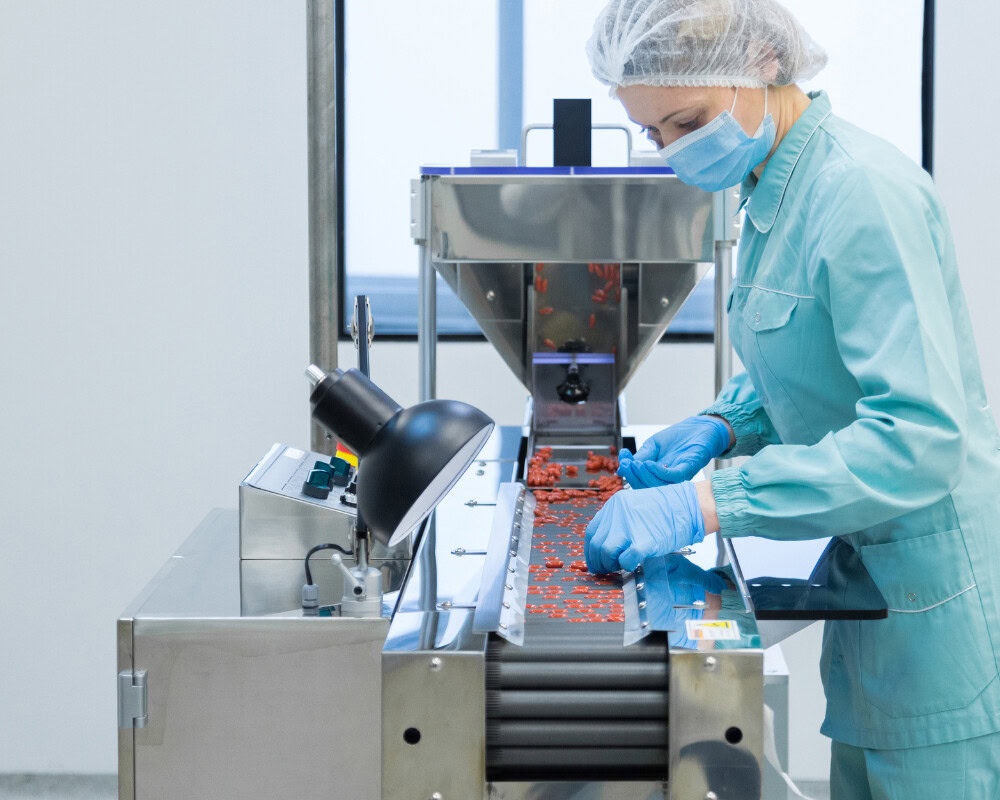Introduction
In the competitive world of pharmaceutical sectorOperational efficiency is not just a benefit, it's an absolute necessity. Companies face a constant race to innovate, while guaranteeing regulatory compliance and meeting the ever-increasing demands of markets and patients. In this context, Mercateam is emerging as a revolutionary solution, designed to address these operational challenges head-on. By putting people at the heart of its system, Mercateam offers a collaborative digital tool that optimizes the skills managementthe training and operator assignmentThis is transforming the way industrial operations are carried out in the pharmaceutical sector.
1. Context and Challenges of the Pharmaceutical Sector
Job growth and innovation dynamics in the pharmaceutical sector
The year 2022 saw significant growth in employment in the pharmaceutical sectorThe number of employees will reach 106,038, marking a major increase of 2.2 % between 2021 and 2022. This positive trend is part of a dynamic of constant innovation, with the French pharmaceutical industry positioning itself as one of the most dynamic industrial sectors.
The challenges of renewing skills and integrating young talent
Despite this growth, the sector faces significant challenges, not least the renewal of skills and the integration of young talent. The branch agreement signed in July 2021 exceeded its initial target by training over 9,600 young people by 2022, underlining the importance of work-study programs as a means of integration. However, the issue of workforce renewal remains a pressing one, with over 2,300 retirements scheduled between now and 2025, plus almost 11,000 departures linked to natural turnover.
The impact of digitalization and automation on skills requirements
Digitization and automation are radically transforming the skills required in the sector. The growing complexity of scientific disciplines and technological developments demand ever higher levels of qualification. More than 58 % employees belong to a level equal to or higher than group 6 of the classification, testifying to this rise in skills.
The need for agile, flexible talent management in the face of rapid market change
In the face of these developments, agility and flexibility are becoming imperatives for talent management. The pharmaceutical industry must not only anticipate future skills requirements, but also rapidly integrate innovations and adapt to changing market demands. It is here that Mercateam, with its advanced functionalities, is positioned as a key lever to support pharmaceutical companies in this transition, by offering a platform for dynamic, reactive skills and talent management.
2. The Mercateam Approach to Transforming Industrial Operations
Mercateam's key features
Mercateam offers a comprehensive suite of tools designed to meet today's operational challenges in the pharmaceutical sector:
- Skills and authorizations matrixEnables companies to precisely map the skills and authorizations of their employees, ensuring that the right people are assigned to the right jobs. This feature is a direct response to the increasing skills requirements of the industry.
- TrainingAutomate training paths to increase team versatility and agility. This is crucial at a time when the industry needs to integrate more than 9,600 young talents trained by 2022, exceeding initial training targets.
- Automatic planning: Integrates skills, competencies and other operational constraints to efficiently assign employees to positions, a major asset for managing the challenges of renewing skills and integrating young talent.
Meeting the Specific Needs of the Pharmaceutical Sector
Mercateam provides an innovative response to the requirements of the pharmaceutical sector by providing a platform that facilitates proactive skills and training management. This enables companies to remain competitive in a rapidly changing market, where efficiency and compliance are paramount. The ability to plan and react dynamically to changes helps minimize downtime and optimize production.
3. Pharmaceutical sector use cases
Introducing Unither Pharmaceuticals
Unither Pharmaceuticalsa world leader specializing in Blow-Fill-Seal technology, with a presence on four continents and products distributed in over 100 countries, has revolutionized plant team management through digitalization. This French company, with over 30 years' experience, has generated sales of 371 million euros in 2022 and employs 2,000 people.
Background and challenges
Team management at Unither Pharma prior to the integration of Mercateam relied heavily on Excel, a system that was difficult to maintain and impractical with its numerous macros and filters, requiring the schedule to be reprinted each time it was modified. The challenges were manifold, ranging from planning to skills management, activity tracking and temporary staff organization.
The Mercateam Mission
The adoption of Mercateam has enabled Unither Pharma to simplify and digitize its processes. The solution has provided a single platform for planning, activity monitoring (MOD), skills management (Standard Teams), and organization around the assignment of temporary staff, perfectly meeting Unither's needs.
Notable results
Mercateam's impact on Unither Pharma was as follows:
- PlanningA 50% reduction in the use of Excel files for planning, with real-time display of planning via touch screens in the plant, accessible to all operators.
- Activity Monitoring (MOD)A finer breakdown of activities for improved cost monitoring and a detailed history of teams and contracts.
- Competency management (Typical teams)The introduction of a "respect for typical teams" indicator to better manage the territoriality of skills linked to production lines.
- Organization of temporary staff assignmentsThe implementation of effective data governance, with a single entry point for data standardization.
Operating income
Team leaders benefited from considerable time savings, thanks to improved data organization and the elimination of tedious manual processes. This transformation has resulted in improved collaboration and responsiveness within the teams.
This collaboration between Unither Pharmaceuticals and Mercateam is a perfect illustration of how digitalization can transform industrial operations, not only improving efficiency but also enhancing the ability to adapt and react to operational challenges.
Conclusion
In conclusion, the article highlights the way in which Mercateam redefines operational efficiency in the pharma sector. Drawing on a combination of advanced technology and a people-centred approach, Mercateam is successfully meeting the complex challenges facing the sector. Employment growth, rapidly changing skill requirements and the need for agile, flexible talent management are major challenges for pharmaceutical companies. Mercateam, with its features such as skills matrix, automated training, automatic planning and workforce planning, offers an integrated solution to overcome these challenges.
The example of Unither Pharmaceuticals perfectly illustrates Mercateam's positive impact on the management of industrial operations, promoting better resource allocation, targeted employee training and a significant improvement in operational efficiency. By enabling proactive management of skills and training, Mercateam helps pharmaceutical companies stay at the forefront of innovation, while ensuring compliance and effectively meeting market expectations.
So.., Mercateam is not only an indispensable tool for pharmaceutical companies seeking to maximize their operational efficiency, but also a strategic partner in their quest for excellence and innovation. In a constantly evolving sector, the adoption of collaborative digital solutions like Mercateam becomes the key to turning challenges into opportunities, guaranteeing sustainable competitiveness and the ability to respond effectively to future needs.



